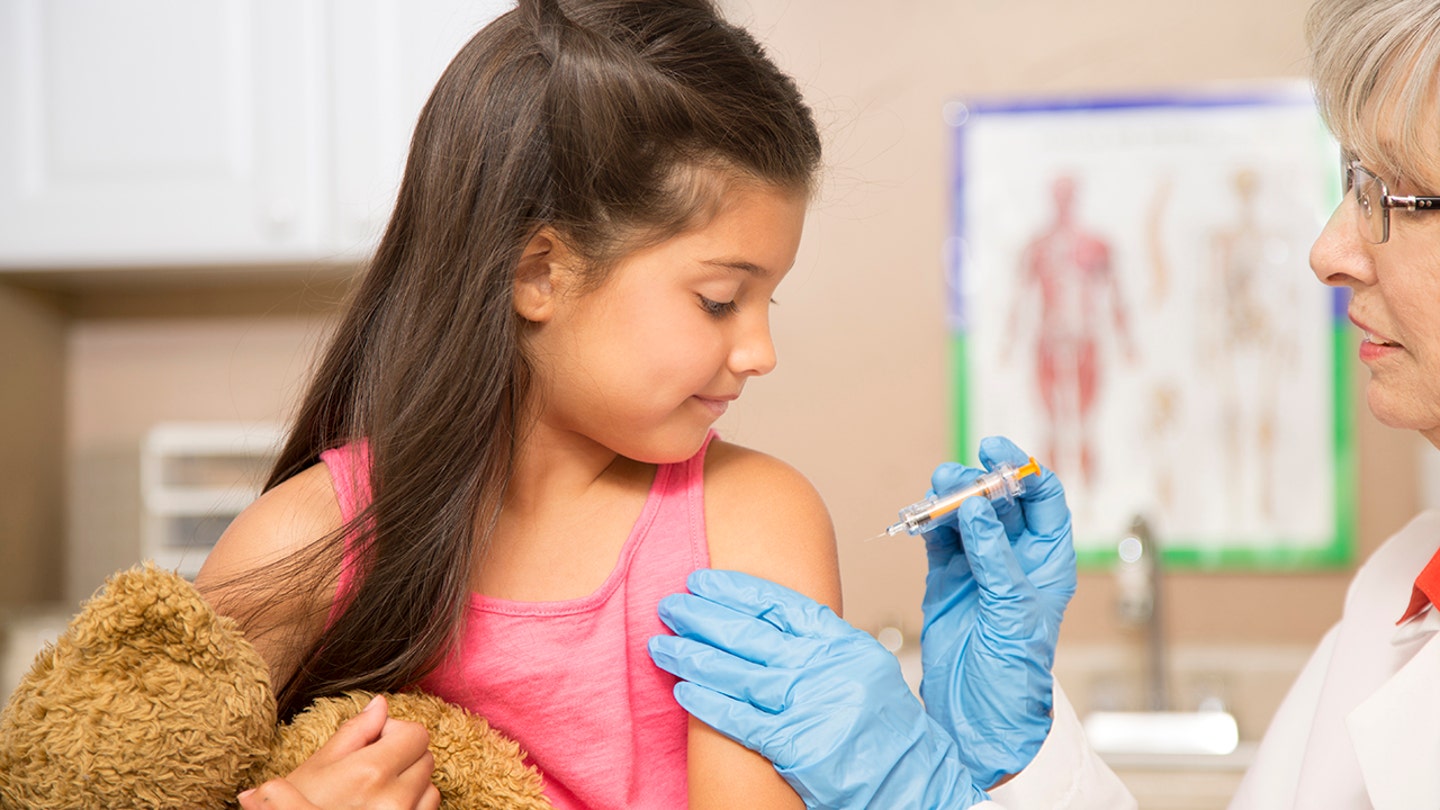New data released by the Centers for Disease Control and Prevention has revealed climbing autism rates among children.
In 2022, a surveillance program called The Autism and Developmental Disabilities Monitoring Network began monitoring children aged 4 to 8 across 15 U.S. states, focusing on multiple benchmarks of autism spectrum disorder (ASD).
Among 8-year-old children, researchers found that one in 31 children — more than 3% of America’s kids — had ASD.
BILL GATES LIKELY HAD AUTISM AS A CHILD, HE REVEALS: ‘WASN’T WIDELY UNDERSTOOD’
ASD was found to be 3.4 times more likely in boys than girls, and the prevalence was lower among non-Hispanic White children.
ASD prevalence among 8-year-olds was higher in 2022 than the previous year, the CDC reported. (iStock)
The CDC confirmed that ASD prevalence among 8-year-olds was higher in 2022 than the previous year, as one in 36 kids were diagnosed with autism in 2020.
By 48 months of age, identification of ASD was higher among children born in 2018 than among those born in 2014, which suggests “increased early identification consistent with historical patterns.”
KIDS WITH AUTISM SUPPORTED BY SERVICE DOGS, AS RESEARCH AND FAMILIES NOTE ‘INCREDIBLE CHANGES’
“[This] underscores the increased demand and ongoing need for enhanced planning to provide equitable diagnostic, treatment and support services for all children with ASD,” the CDC commented in the report.
“The substantial variability in ASD identification across sites suggests opportunities to identify and implement successful strategies and practices in communities to ensure all children with ASD reach their potential.”

“We’re living in a time when diagnosis has become the default, not the exception,” a psychotherapist commented. (iStock)
Jonathan Alpert, a Manhattan-based psychotherapist and author, said he considers the CDC’s findings “alarming but not surprising.”
“We’re living in a time when diagnosis has become the default, not the exception,” he shared with Fox News Digital. “Whether it’s children in schools or adults in therapy, more and more people are being told they have a disorder.”
Alpert suggested that this spike in autism is part of a “much larger trend.”
CDC TO LAUNCH STUDY INTO VACCINES AND AUTISM, POSSIBLE LINKS: REPORT
“Are we really seeing an epidemic of illness, or are we expanding definitions to the point where normal variation gets labeled as pathology?” he questioned.
“I see it in my practice every week – patients who come in are already convinced something is wrong with them because of a checklist they found online or a therapist who rushed to diagnose.”
“Many are struggling, yes — but they’re being failed by a system that offers quick labels and long-term treatment plans instead of results.”

Autism was found in one in 31 kids, equating to about a classroom size in some areas of the U.S. (iStock)
The expert called out behaviors like shyness, awkwardness and emotional sensitivity, which were “once seen as a part of the human experience,” but are now being treated as “symptoms of a disorder.”
“People deserve honesty, not confusion,” he commented. “They deserve to know whether a diagnosis is grounded in real clinical need or in shifting cultural norms and professional convenience.”
CLICK HERE TO SIGN UP FOR OUR HEALTH NEWSLETTER
Regarding the potential link between vaccines and autism, Alpert said this could be linked to a larger issue of trust in institutions, including mental health.
“When the field becomes more focused on image and ideology than outcomes, people tune out,” he said. “And that’s the crisis we should really be focused on.”

“We’re living in a time when diagnosis has become the default, not the exception,” a psychotherapist (not pictured) told Fox News Digital. (iStock)
A spokesperson from the New York-based nonprofit Autism Speaks commented that these findings reflect “real progress” in children being identified more accurately through increased awareness, broader diagnostic criteria and more “consistent, standardized screening tools.”
CLICK HERE TO GET THE FOX NEWS APP
“While there are many factors driving these numbers, research shows that 60% to 90% of autism risk is rooted in genetics,” they said in a statement to Fox News Digital.
“Still, one thing is clear – this steady increase in prevalence calls for deeper, sustained investment in autism research — not only to understand its causes, but also to support the growing number of people diagnosed today.”
“This steady increase in prevalence calls for deeper, sustained investment in autism research.”
The spokesperson called for changes in policies and budgets to reflect this “new reality.”
“That means expanding access to early intervention, strengthening educational and healthcare systems, and providing supports that span a lifetime. This data is not just a number — it’s a call to action.”

Autism Speaks reiterated its alignment with research that confirms vaccines “do not cause autism,” and advocated for vaccine info to be “based on scientific evidence.” (iStock)
Autism Speaks reiterated that research confirms vaccines “do not cause autism,” and advocated for vaccine information to be “based on scientific evidence.”
“We recognize the administration’s interest in autism research and reiterate our long-held position that federal investments need to be increased and focused on evidence-based advancements that benefit autistic people and their families,” they said.
For more Health articles, visit foxnews.com/health
“Moving forward, meaningful research must be grounded in rigorous, evidence-based methods and carried out in partnership with the autism community, including scientists, clinicians, autistic individuals and families.”

